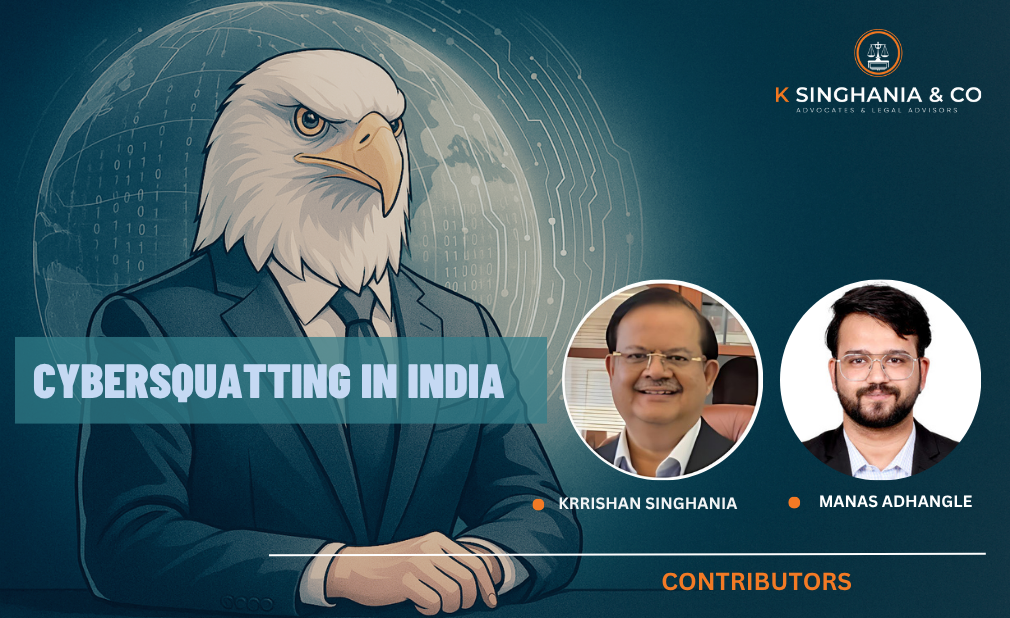While patent law offers strong protections for proprietary inventions, obtaining a patent requires establishing that the invention is novel, non-obvious, and patent-eligible. It also requires disclosure of the invention itself in the patent application. And while patents last for twenty years, they do not last forever. By contrast, trade secrecy provides another avenue to protecting a company’s IP that allows the inventions to be kept secret and potentially protected forever. Coca-Cola’s secret formula. McDonald’s’ special sauce. Google’s search algorithm. Bumble’s dating software. This proprietary information is vital to these companies’ survival, and among their most valuable corporate assets. Each is protected as a trade secret.
Status Quo in India
The United States Trade Representative (USTR), in its annual Special 301 report continued to identify India on the ‘Priority Watch List’ citing a lack of adequate intellectual property (IP) rights protection and enforcement in the country. The Report also lists an outdated and insufficient trade secrets legal framework as a reason for India being on the list, which raises an important question as to the need for legislation to fill in the lacunae, as India currently has no specific legislation on Trade secrets.
A trade secret can be defined as it could be any business information that derives commercial value from it being kept secret with the owner making reasonable efforts to maintain this secrecy.
To constitute a ‘Trade secret’, certain essential elements must be present. The TRIPS Agreement lays down these elements, which are:
· The information must not be generally known or readily accessible to people who normally deal with such information;
· It must have some commercial value as a result of being a secret,
· The lawful owner of such information must take reasonable steps to ensure secrecy.
Trade secrets are different from other forms of IP as the former does not require it to be disclosed to be eligible for protection. Whereas, other IPs require full disclosure to be accorded protection. Further, Intellectual Property, other than trade secrets has fixed terms of protection, post which they will be in the public domain. This is not the case with trade secrets as they are accorded protection as long as the secrecy is maintained, and they are not disclosed in public.
In India, there is no legislation that specifically deals with trade secrets. The National Innovation Bill, 2008 was an attempt by the government to codify and consolidate the law of confidentiality in aid of protecting Confidential Information, trade secrets and Innovation. This Bill contained provisions relating to breach of confidentiality.
Alternative Remedies available
In the absence of specific legislation pertaining to trade secrets, the courts in India have relied upon the Principle of equity and contractual law, to grant protection to trade secrets. In the case of John Richard Brady And Ors v. Chemical Process Equipments P. Ltd. and Anr. the Delhi High Court laid down that remedy would be available even in the absence of an express confidentiality clause if confidentiality is implied. In the case of Homag India Private Ltd Vs Ulfath Ali Khan, the court, while granting an injunction against the defendants in a case of theft by third- party, took the position that breach of confidentiality and misuse of confidentiality are actionable rights.
An aggrieved party has the option of opting, criminal remedies available under the provisions of the Indian Penal Code. Sections 405 and 409 of the code deal with criminal breach of trust and the punishment for the offence, respectively. Sections 417 and 418 of the code relates to cheating.
Section 72 of the Information Technology Act provides for criminal remedies, whereby a person may be punished with imprisonment for a term along with a fine in case he is found to have secured access to any electronic record, book, register, information document, or other material without the consent of the person concerned and such first-person discloses such information further.
The TRIPS Agreement recognises trade secrets under the provision relating to the protection of undisclosed information. Article 39 of the Agreement, provides for the protection of information if certain criteria are met i.e. information must be a secret; by virtue of being a secret, it has some commercial value; and reasonable efforts must be taken by a person in control, to keep it a secret.
US Position
In contrast to this, the position in the United States is starkly different as they have specific legislation for the protection of trade secrets. The Uniform Trade Secrets Act, 1970, defines trade secrets as:
information, including a formula, pattern, compilation, program, device, method, technique, or process, that: (i) derives independent economic value, actual or potential, from not being generally known to, and not being readily ascertainable by proper means by, other persons who can obtain economic value from its disclosure or use, and (ii) is the subject of efforts that are reasonable under the circumstances to maintain its secrecy.
To prevent actual and threatened misappropriation of trade secrets, the Act provides for injunctive relief.
Misappropriation is defined in Section 1(2) as –
(i) acquisition of a trade secret of another by a person who knows or has reason to know that the trade secret was acquired by improper means; or
(ii) disclosure or use of a trade secret of another without express or implied consent by a person who-
A) used improper means to acquire knowledge of the trade secret; or
(B) at the time of disclosure or use, knew or had reason to know that his knowledge of the trade secret was
(I) derived from or through a person who had utilized improper means to acquire it;
(II) acquired under circumstances giving rise to a duty to maintain its secrecy or limit its use; or
(III) derived from or through a person who owed a duty to the person seeking relief to maintain its secrecy or limit its use; or
(C) before a material change of his [or her] position, knew or had reason to know that it was a trade secret and that knowledge of it had been acquired by accident or mistake.
As an alternative to an injunction, the courts may order payment of continuing royalty in exceptional cases. The Act also provides for the preservation of secrecy by courts. This is done by way of hearings in camera, sealing the records of action, and ordering any person involved in the litigation not to disclose an alleged trade secret without prior court approval.
Need for Legal framework
Protection of Trade Secrets helps businesses keep their information confidential which is integral to maintain an edge over competitors. Often the confidential information has economic value and its disclosure can adversely affect the interests of the business owners.
In the absence of a legal framework that protects trade secrets, business owners must resort to other measures to safeguard their interests. If the trade secret is not patentable, then all necessary steps must be taken to keep the information confidential. Enforcement of confidentiality agreements with respect to employment contracts will ensure that employees do not disclose information to third parties.
Conclusion
It is thus important for the companies to protect their technologies and more so their secrets in order to safeguard their proprietary rights. Further, it goes without saying that statutory protection of trade secrets, like other forms of IP, will incentivise research and innovation.
India needs to pass a law relating to Trade Secrets to give certainty to businesses so that in case there is any breach of Trade Secret then the party committing breach can be punished as in case of any other IP rights. It will also encourage foreign companies to provide us with the latest technology if they are confident that their Trade Secret will be protected in India
Click Here to read the article ‘Keeping Up With The (Trade) Secrets’ on BW Legal world.






